MercoPress. South Atlantic News Agency
Antarctica
-
Tuesday, March 16th 2010 - 16:42 UTC
In spite of bad weather 16 cruise vessels visit South Georgia during February
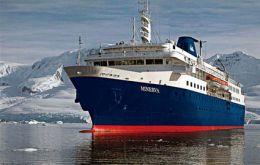
For South Georgia February was one of the busiest months in the 2009/10 tourist season with sixteen cruise ships and six yachts visiting the island.
-
Saturday, February 27th 2010 - 00:42 UTC
Iceberg size of Luxembourg knocks loose and could disrupt weather patterns
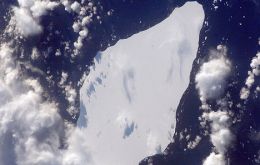
An iceberg the size of Luxembourg knocked loose from the Antarctic continent earlier this month could disrupt the ocean currents driving weather patterns around the globe, researchers said on Friday.
-
Monday, February 22nd 2010 - 23:53 UTC
Germans record underwater massive iceberg crash into Antarctic ice-shelf
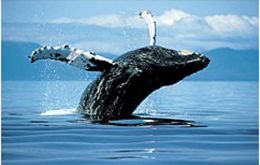
German oceanographers in Antarctica used underwater microphones this month to listen in on a massive iceberg crashing into the Antarctic ice-shelf, which cause a 2 000- metre crack, the ice lab headquarters said on Monday.
-
Tuesday, February 16th 2010 - 02:02 UTC
Shackleton “Quest” cabin, new show piece for South Georgia Museum
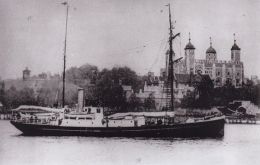
The cabin in which British polar explorer Sir Ernest Shackleton died aboard his ship “Quest” looks set to become an important new artefact at the South Georgia Museum.
-
Monday, February 15th 2010 - 06:38 UTC
Chile announce ambitious Antarctica Strategic Plan
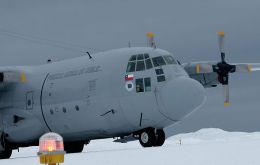
Chile’s Public Works Ministry announced the launching of five new projects in Antarctica.
-
Saturday, February 13th 2010 - 07:37 UTC
Thirteen cruise vessels visit South Georgia during January
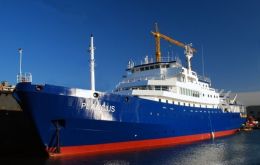
Thirteen cruise ships visited this month South Georgia, according to the SG Newsletter. This included a vessel new to SG, the 112 passenger “Plancius”. However one vessel, l “Clelia II” had to cancel her visit after striking rocks with her propeller at Petermann Island in the Antarctic Peninsula.
-
Thursday, February 11th 2010 - 03:00 UTC
The Commissioner and Foreign Office official tour South Georgia

Commissioner Alan Huckle and his wife Helen visited South Georgia in January. Travelling with them was Jane Rumble, Head of the Polar Regions Unit at the Foreign and Commonwealth Office, and GSGSSI Senior Executive Officer Martin Collins, reports the January edition of the S.G. Newsletter.
-
Monday, February 8th 2010 - 20:29 UTC
Bid to sell the Falkland Islands as gateway to Antarctica
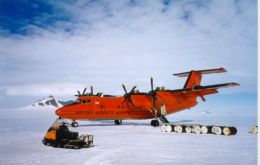
Informal talks began this week on a proposal to market the Falkland Islands to tourists as the “Gateway to Antarctica”, according to a report from the Penguin News latest edition.
-
Saturday, February 6th 2010 - 11:49 UTC
Whaler, activist ship collide again off Antarctica

Anti-whaling activists have described how Japanese whaling ships circled their protest vessel “like sharks” before ramming it off Antarctica.
-
Saturday, February 6th 2010 - 08:53 UTC
Shackleton Antarctic gift for whisky lovers': century old recipe
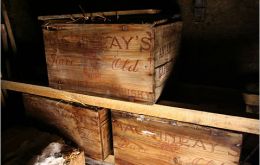
Five crates of a century-old lost whisky belonging to Antarctic explorer Ernest Shackleton have been recovered by conservators. Three crates of the Mackinlay whisky, and a further two crates of brandy, were discovered beneath the hut, and used by Shackleton to launch his journey to the South Pole.
